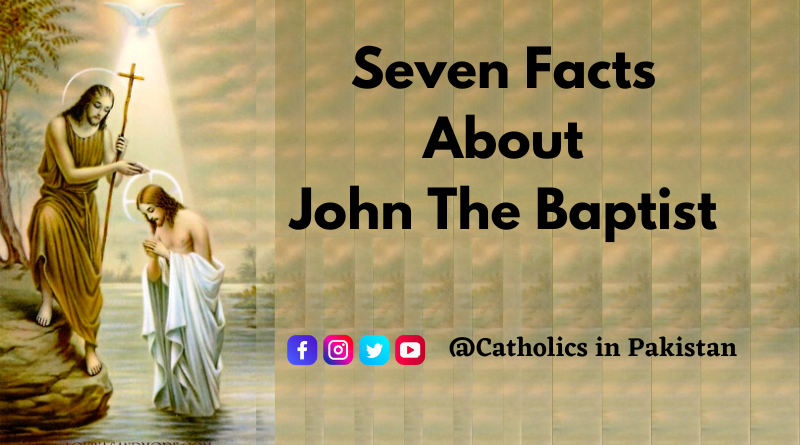Seven Facts About John The Baptist
John The Baptist was a Jewish prophet from the region of Jordan River. John was born during the 1st century BC and it is estimated that he was executed around 36 AD. The Christian church celebrates him as ‘the Forerunner’ to Jesus Christ.
Emerging from the wilderness the essence of his ministry was to repent for the forgiveness of sins. Believers were baptised with water which signified a person’s commitment to a new life free from sin.
However, in the early days of Christianity John was a contentious figure. So they thought that it was necessary to reinterpret his mission in view of the coming of Jesus Christ.
Also Read: What is the difference between alcohol and wine?
Also Read: These three things are a must in every Catholic home except the Bible
Here are 7 facts about John the Baptist.
1. John the Baptist was a real person
The evidence of John’s presence is marked by the Gospels and the works of Flavius Josephus, a Romano-Jewish historian. Upon closer examination it appears that the Gospels and Josephus clearly support each other because of similar facts regardless of different perspectives.
2. John’s ministry was situated in the wilderness
The wilderness was of great importance to the people of the Second Temple period, for it served several functions. It was a place where a person might go to seek God and find refuge. Its significance is also reflected in the readings from the book of Exodus which provided the setting for events in which God intervened in the history of his people.
At the time the wilderness was also associated with the reparation of sins, such as the religious custom of sending a scapegoat bearing the sins of the nation to the desert demon, Azazel.
3. John was one of several wilderness prophets
John was recognised as a wilderness prophet among others such as Theudas the Eyptian. Although most of them were peaceful, few took a more militant approach like Judas the Galilaean. Their sole aim was to invoke God’s mercy to rescue the people from the oppressive rule of the Romans.
4. John’s baptism was based on existing Jewish lustration rites
In Judaism Lustration was an important purity ritual. In this regard a particularly important passage is found in Leviticus 11-15. As time went on, these rites were adapted and reinterpreted by some; although the ritual of purity remained significant. It was at this time that self-discipline and abstinence were also addressed.
By the time John baptised there were other prophets who practised this ritual before meals like Bannus and the covenanters at Qumran. A complex system of pools, cisterns and aqueducts was well developed to accommodate this need.
Also Read: Should Christians take part in Jewish traditions?
5. John’s baptism differed in one important aspect
So while other prophets focused on physical cleanliness John’s baptism differed in that he required spiritual cleanliness in order to be set right with God. John’s baptism required people to change their hearts, reject sin and return to God. In other words, he asked them to repent. A person was allowed to be baptised by John only if they expressed sincere sorrow for their sins, pledged to treat their neighbours justly and showed piety towards God.
The significance of John’s baptism was held in the true repentance of a person. Meaning that the heart of the penitent had completely changed only then it would be acceptable to God. Resulting in the forgiveness of sins.
6. One of John’s disciples was Jesus
Jesus of Nazareth was one of those who came to listen to John and to submit to his baptism. He listened to John’s preaching, was inspired by it and submitted to baptism in his turn.
7. John was arrested and executed
For several reasons John was arrested, imprisoned and executed by Herod Antipas. Herod Antipas, who had renounced his wife in order to marry Herodias, felt targeted by John. For John had preached against immorality. The daughter of King Aretas IV of Nabataea was Herod’s first wife. Their marriage was a result of a sealed peace treaty. The treaty was now void and it fuelled the war between Herod and King Aretas.
Herod was considered as an impure Torah breaker because of John’s preaching of judgement and the removal of unrepentant sinners. Furthermore, John was a major threat not only because he attracted large crowds, but also because John proclaimed of a Coming One who was much greater than himself. This threatened Herod’s political power resulting in John’s execution.
(The article was originally published in historyhit.com)





